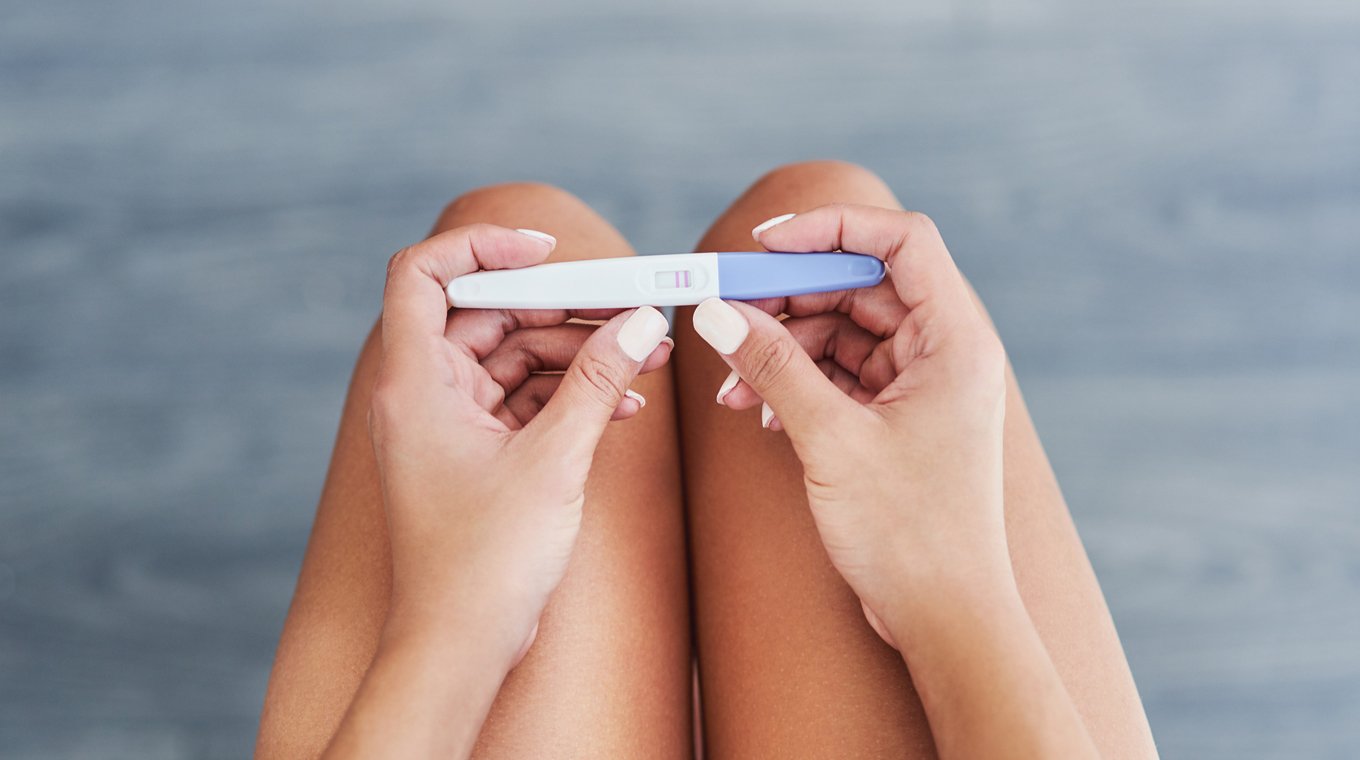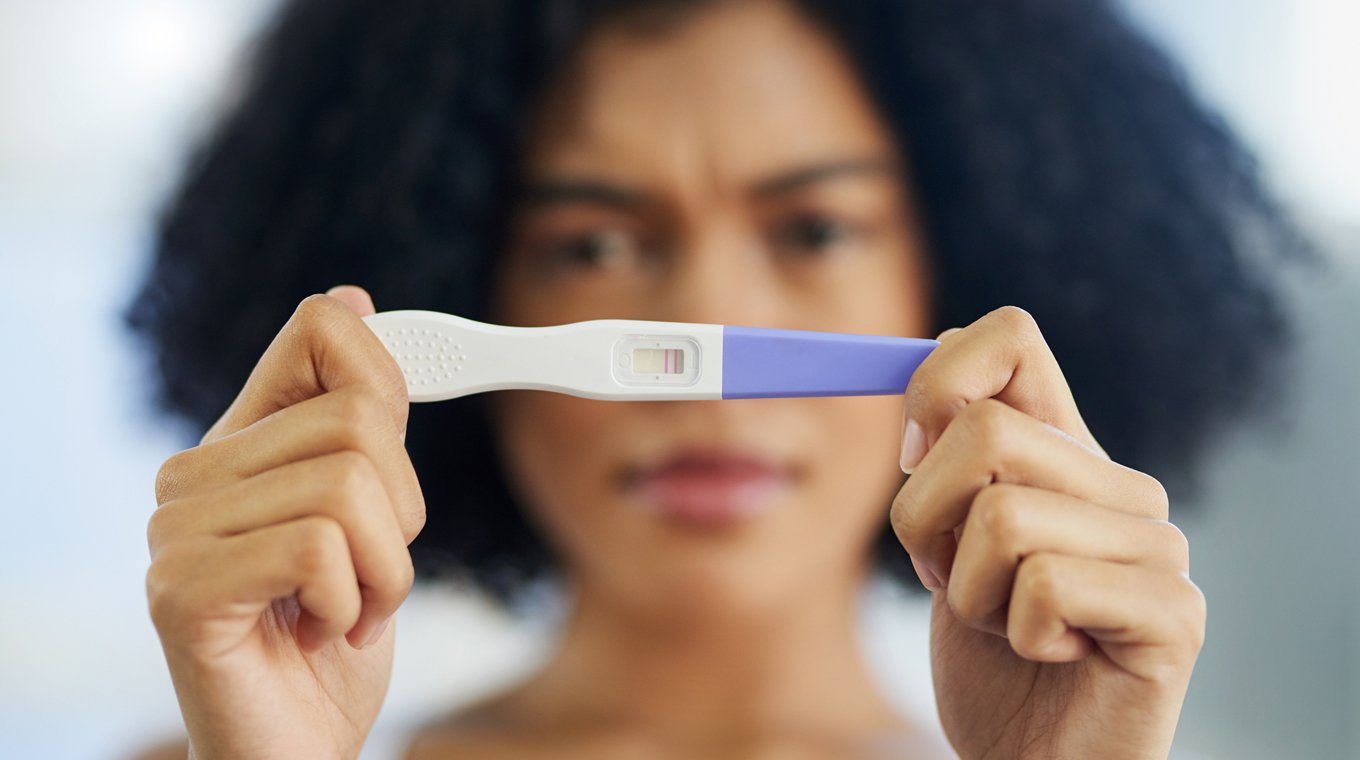In this article
When you really need to know whether you are or you aren't, false pregnancy test results can cause confusion and anxiety. It can be an emotional experience, especially if someone is facing infertility, experienced a pregnancy loss, or has been hoping to get pregnant.
So how often are pregnancy tests wrong, what causes inaccurate results and what can you do to ensure you're testing at the right time, and in the right way? Here are some ways to help cut through the confusion and tips to help avoid false pregnancy test results.
How many pregnancy test types are there?

Pregnancy tests check for the human chorionic gonadotropin (hCG) hormone produced in the placenta upon implantation. This can be done in two ways, by either checking blood or urine. The at-home pregnancy test can detect hCG in the urine at about two weeks from the time of conception. A blood test administered by a health care practitioner can detect hCG nine days after conception.
"The beta hCG can be picked up as early as 8 – 9 days post ovulation; trace amounts of it, but it's helpful to know when a woman ovulated," infertility specialist Anu Katherisan explained in her YouTube video. "I usually tell patients to wait approximately two weeks after ovulation — which is also the expected time of a missed period — so by waiting this long, hopefully that hCG has risen high enough that it can be detected."
Pregnancy test accuracy: Can they be trusted?

Most over-the-counter pregnancy test manufacturers claim their tests are 97% to 99% accurate when used as instructed. In other words, you can trust a positive result you get when taking an at-home pregnancy test — again, according to the manufacturer — but false-negative results can also occur.
It's important to note that while manufacturers continue to make these claims, data compiled by the National Institute of Health, indicates that there are no standard criteria for testing performance and claims. Results clearly show that the lack of consistency in how manufacturers are allowed to describe a pregnancy test's performance is lacking and could provide inaccurate results, so further study is necessary to say for sure whether these tests are accurate to the degree manufacturers claim.
"I was so excited to think that I could be pregnant. I'd been having sore breasts and kept feeling twinges, I guess you could call them, in my ovaries. I took a pregnancy test, though, and it showed negative, so needless to say I was devastated," Andrea C. told Mom.com. "After a few weeks without a period, I decided to go to my doctor and that's when I learned that I was actually pregnant — I had just tested myself far too early."
Reasons for a false positive pregnancy test

In some cases, women will receive false pregnancy test results when taking an at-home pregnancy test. There are a few reasons why this occurs. Being on fertility medication, for example, could cause a false positive test result. Or taking the test too early can also give you inaccurate results.
Someone who has recently given birth or recently experienced a pregnancy loss could also have false positive pregnancy test results. The hCG hormone is present in the body for months after each of these events and can take anywhere from 4 – 6 weeks for hCG levels to return to their pre-pregnancy state.
“Home urine pregnancy tests are pretty reliable,” Ob/Gyn Jonathan Emery, MD. told the Cleveland Clinic “But there are some reasons you might get a false-positive result.”
Emery points out that a pregnancy loss is frequently the reason. “It’s not technically false since a very early pregnancy did occur,” he said. “But this is the most common reason that a pregnancy test might appear to have been false.”
It's important, too, to make sure that the at-home pregnancy test you're using is not expired. Older tests could be faulty and therefore unable to detect hCG in the urine; for this reason a false positive pregnancy test result is also possible. If you happen to test too early based on symptoms you're experiencing, it's likely that the test is unable to pick up the hCG hormone in your urine, and it's advisable to wait a few days and retest.
If you do get a positive pregnancy test result, it's important to schedule your first pre-natal visit with your doctor. Similarly, should you consistently get a negative result, but still haven't had your period, a visit to the doctor is warranted.





